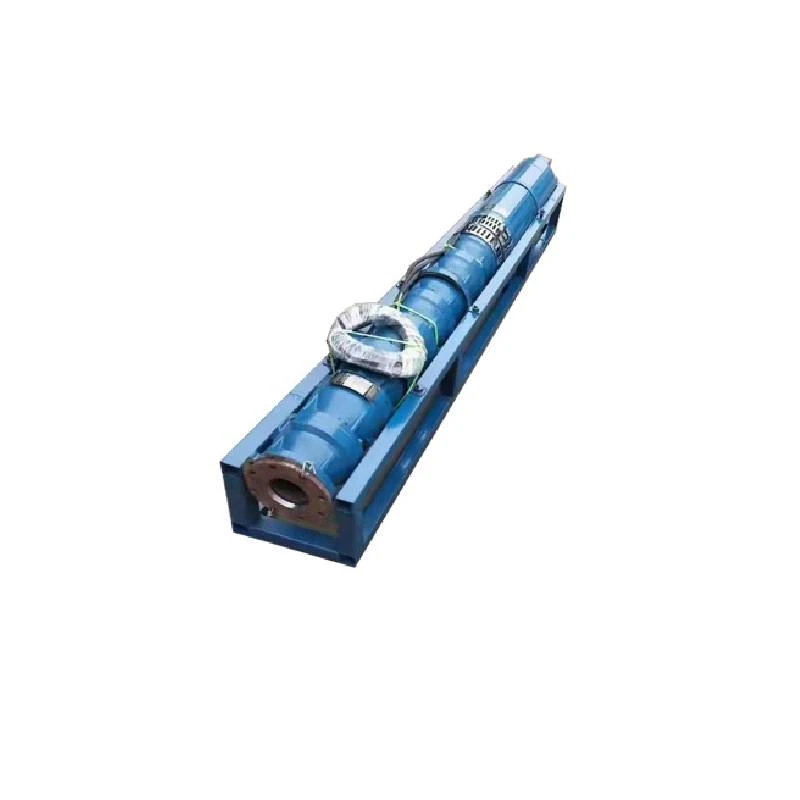ഡിസം . 29, 2024 01:41 Back to list
Optimizing Performance of Deep Well Pumping Systems for Enhanced Water Management Efficiency
Understanding Deep Well Pump Systems An Essential Component of Efficient Water Management
Deep well pump systems are crucial for extracting groundwater from significant depths, catering to a wide range of applications, from agricultural irrigation to municipal water supply. Unlike traditional shallow well pumps, deep well pump systems are designed to operate efficiently at profound depths, making them essential in areas where surface water is scarce and groundwater is the primary source.
Components of a Deep Well Pump System
A typical deep well pump system consists of several key components, each playing a vital role in the overall functionality. The primary components include the pump itself, a motor, a well casing, and associated piping and controls.
1. The Pump Deep well pumps are typically submersible, meaning they are submerged in the water and are capable of lifting water from great depths. These pumps are designed to handle higher pressures and can operate effectively in varying conditions, ensuring consistent performance.
2. Motor The pump motor is usually located above the ground, coupled with the pump through a drive shaft. In submersible installations, the motor is encased within the pump and operates underwater. High-efficiency motors are vital for energy conservation, especially in residential and agricultural setups where electricity costs can significantly impact operational expenses.
3. Well Casing This component serves as a protective tube, ensuring that the well retains its shape and prevents contaminants from entering the water supply. Proper construction and maintenance of the well casing are critical for long-term performance and water quality.
4. Piping and Controls The piping system connects the pump to the distribution network, allowing for efficient water flow to various points of use. Modern deep well pump systems often come equipped with sophisticated control technologies, such as variable frequency drives (VFDs), to optimize performance and reduce energy consumption.
deep well pump system

Applications of Deep Well Pump Systems
Deep well pumps find applications in various sectors, including agriculture, municipal water supply, industrial processes, and residential uses. In agriculture, these systems are vital for irrigation, ensuring that crops receive an adequate supply of water, especially in arid regions. Municipalities rely on deep well pump systems to provide potable water to residents, particularly in areas with limited surface water resources.
In industries, deep well pumps are used in cooling systems, process water supply, and even for groundwater remediation. Their adaptability makes them indispensable in construction and mining, providing reliable water supplies for various operational needs.
Benefits of Deep Well Pump Systems
The advantages of deep well pump systems are numerous. They provide a reliable source of water that can be accessed during dry seasons, reducing dependency on surface water. Additionally, these systems can be designed to meet specific flow and pressure requirements, making them customizable for different applications.
Moreover, advances in technology have led to the development of energy-efficient models that significantly lower operational costs. The implementation of solar-powered deep well pumps has further enhanced their appeal, providing sustainable solutions for off-grid locations.
Conclusion
In conclusion, deep well pump systems play a pivotal role in managing water resources, particularly in regions where surface water is limited. Their design, efficiency, and adaptability make them essential for various applications. As technology continues to evolve, deep well pump systems will likely become even more efficient and environmentally friendly, supporting sustainable water management practices for the future. Understanding these systems is crucial for anyone involved in water resource management, agriculture, or municipal services, ensuring that they can effectively meet the challenges of a changing climate and population growth.
-
Submersible Water Pump: The Efficient 'Power Pioneer' of the Underwater World
NewsJul.01,2025
-
Submersible Pond Pump: The Hidden Guardian of Water Landscape Ecology
NewsJul.01,2025
-
Stainless Well Pump: A Reliable and Durable Pumping Main Force
NewsJul.01,2025
-
Stainless Steel Submersible Pump: An Efficient and Versatile Tool for Underwater Operations
NewsJul.01,2025
-
Deep Well Submersible Pump: An Efficient 'Sucker' of Groundwater Sources
NewsJul.01,2025
-
Deep Water Well Pump: An Efficient 'Sucker' of Groundwater Sources
NewsJul.01,2025
-
 Submersible Water Pump: The Efficient 'Power Pioneer' of the Underwater WorldIn the field of hydraulic equipment, the Submersible Water Pump has become the core equipment for underwater operations and water resource transportation due to its unique design and excellent performance.Detail
Submersible Water Pump: The Efficient 'Power Pioneer' of the Underwater WorldIn the field of hydraulic equipment, the Submersible Water Pump has become the core equipment for underwater operations and water resource transportation due to its unique design and excellent performance.Detail -
 Submersible Pond Pump: The Hidden Guardian of Water Landscape EcologyIn courtyard landscapes, ecological ponds, and even small-scale water conservancy projects, there is a silent yet indispensable equipment - the Submersible Pond Pump.Detail
Submersible Pond Pump: The Hidden Guardian of Water Landscape EcologyIn courtyard landscapes, ecological ponds, and even small-scale water conservancy projects, there is a silent yet indispensable equipment - the Submersible Pond Pump.Detail -
 Stainless Well Pump: A Reliable and Durable Pumping Main ForceIn the field of water resource transportation, Stainless Well Pump has become the core equipment for various pumping scenarios with its excellent performance and reliable quality.Detail
Stainless Well Pump: A Reliable and Durable Pumping Main ForceIn the field of water resource transportation, Stainless Well Pump has become the core equipment for various pumping scenarios with its excellent performance and reliable quality.Detail
